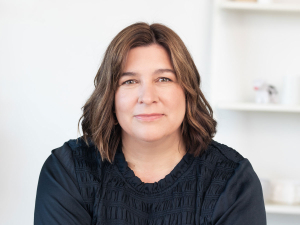Trump’s tariffs put $1.3B NZ exports to US at risk, DCANZ warns
Donald Trump's uncompromising tariff policy is set to put New Zealand dairy exports to the US under huge pressure.
 DCANZ chief executive Kimberly Crewther says this is an ongoing battle to ensure Canada upholds its trade commitments on dairy.
DCANZ chief executive Kimberly Crewther says this is an ongoing battle to ensure Canada upholds its trade commitments on dairy.
The Canadian government's utter disdain for international trade rules has come under fire yet again.
This time the NZ Dairy Companies Association (DCANZ) has joined forces with similar organisations in the United States and Australia in writing to their respective agriculture ministers over Canada's dumping of subsidised dairy products on the world market. The move is distorting the market and affecting dairy farmers' returns in other dairy exporting countries such as NZ.
The dispute comes about because of the way the Canadian milk pricing system is structured and subsidised. In essence, Canadian milk processing companies are able to access milk at below the cost of production from farmers, allowing them to sell their products at a much lower price than processing companies in NZ, the US and Australia.
DCANZ executive director Kimberly Crewther says the letter highlights that action to curb these harmful Canadian policies is a matter of urgency, with the imminent prospect of further Canadian processing investment premised on this access to below-cost milk protein. She says the joint-call is for the governments of New Zealand, US and Australia to actively pursue the issue using all available tools.
"Canada's policy approach is at odds with its international trade obligations in much the same way as previous Canadian dairy pricing policies were found to breach WTO export subsidy rules in the past. This is an ongoing battle to ensure Canada upholds its trade commitments on dairy," she says.
This latest spat with Canada is in addition to a separate ongoing dispute that has seen Canada refuse to open up its market to NZ dairy products as part of an agreement and rules of the Comprehensive and Progressive Agreement for Trans-Pacific Partnership (CPTPP). Under CPTPP rules, Canada is required to give NZ access to its market, and despite NZ winning a mediation dispute to have access, Canada blatantly refused to budge. This dispute has been going on for almost two years.
This has led Crewther to label Canada "a recidivist breaker of international trade rules". Previously high-ranking MFAT trade negotiator, Vangelis Vitalis, said "putting it frankly, Canada's approach to administering its dairy quotas is protectionist and undermines the market access agreed between CPTPP parties".
And to top it off, Canada has also had a blast from Trade Minister Todd McClay who described their actions as "cynical".
Behind this dispute is a somewhat fragile political imperative for the Canadian government who, like many other countries, are hell bent on bowing to a small but vocal domestic dairy industry and thumbing their noses at binding trade agreements. It will be interesting to see if, and how, the new Trump administration will deal with the Canadians.
Donald Trump's latest tariff tantrum has again thrown the world of trade into a new round of turmoil and uncertainty, and NZ is caught up in it.
The third edition of the NZ Dairy Expo, held in mid-February in Matamata, has shown that the KISS principle (keep it simple stupid) was getting a positive response from exhibitors and visitors alike.
Twenty years ago, South African dairy farm manager Louis Vandenberg was sent to a farm in Waikato to provide training on Afimilk technology.
Strong farmgate milk price is helping boost investment on farms, says PGG Wrightson chief executive Stephen Guerin.
Fonterra's 460 milk suppliers in Australia, who will switch to Lactalis end of this month, are unfazed with the impending change.
The 5+ A Day Charitable Trust has launched a collection of affordable recipes designed to turn everyday vegetables into seasonal stars.
OPINION: Is it a case of over promising and under delivering? Farmers think so.
OPINION: The UK dairy industry is celebrating a win after plant-based drink maker Oatly lost a long-running legal battle over…